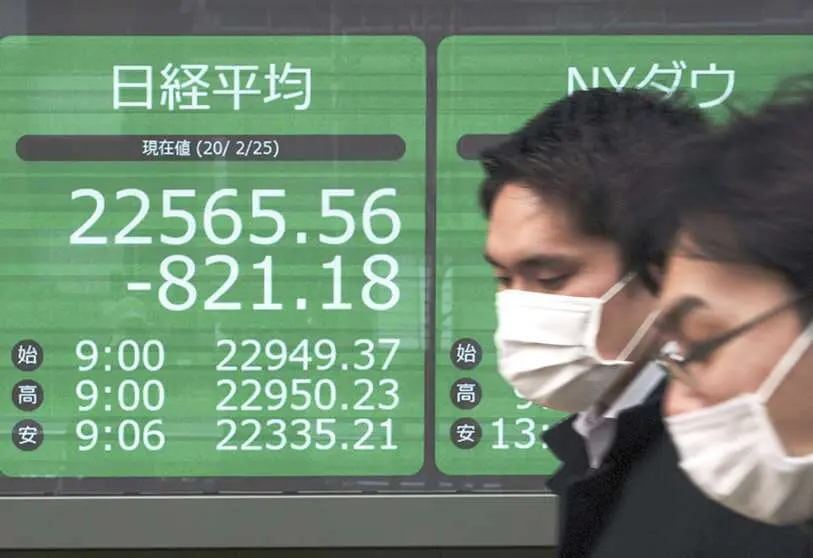OECD sees danger of recession in Eurozone and Japan due to coronavirus

The impact of the coronavirus could halve the growth of the world economy by 2020 to 1.5%, according to the most adverse scenario analyzed by the Organization for Economic Cooperation and Development (OECD), which anticipates that if the virus spreads massively in Japan and Europe, both could enter a recession. This is reflected in the interim outlook of the OECD, which revises those published in November, which forecast global economic growth of around 2.9%.
The OECD does not rule out that in its most negative scenario - with a prolonged epidemic and widespread contagion to other regions - global gross domestic product will fall in this first quarter. However, it admits that the short and medium term evolution is “very uncertain”. The assumption that the epidemic will peak in China this quarter and be more moderate in other countries leaves the global economic upswing this year at 2.4%, five-tenths of a point lower.
Before the epidemic, activity was already low, but showed signs of stabilization and even improvement. Now, the effect of the coronavirus on confidence, financial markets, supply chains and tourism explains the decline. Unlike the SARS epidemic in 2003, the interdependencies of the global economy this time are much greater and China plays “a much more important role” in production and the tourism market.
China's Hubei province, the epicentre of the epidemic, accounts for 4.5% of Chinese production. And Chinese tourists account for about 10% of international tourists in the world, the agency added. For the time being, it is estimated that the G20's GDP will grow by 2.7% in 2020, five tenths less than anticipated, and that of the Euro zone by 0.8% (three less).
The OECD expects the Chinese economy to grow by 4.9%, eight tenths less. The impact of the contraction of its production worldwide reflects its growing importance in supply chains and raw material markets, it added. In the United States, he forecasts a 1% increase by 2020 (one tenth less), in Japan 0.2% (four less), in the United Kingdom 0.8% (two less), in France 0.9% (three less) and in Germany 0.3% (one less), according to his forecasts, which do not include Spain.
The OECD calls for “rapid” action on the coronavirus, with sufficient means against infection, support for the health system and “vulnerable” businesses, and concerted action by the G20 with other countries if downward risks materialise and growth is much weaker over a prolonged period. This should include a collective commitment to increase the necessary public spending.
Faced with the possibility that the epidemic will remain contained and these policies will have an impact, the Paris-based organization estimated that the global economic upturn will rise to 3.3% by 2021, three tenths of a percent more than was predicted in November. The G20's will grow by 3.5% (two-tenths more) and the eurozone's by 1.2%, an unchanged percentage.
The coronavirus is not the only immediate risk that weighs on the economy according to the OECD. Trade tensions between China and the United States, uncertainty about future trade relations between the European Union and the United Kingdom and the persistence of “financial vulnerability” factors are other threats recorded by the Paris-based agency.








